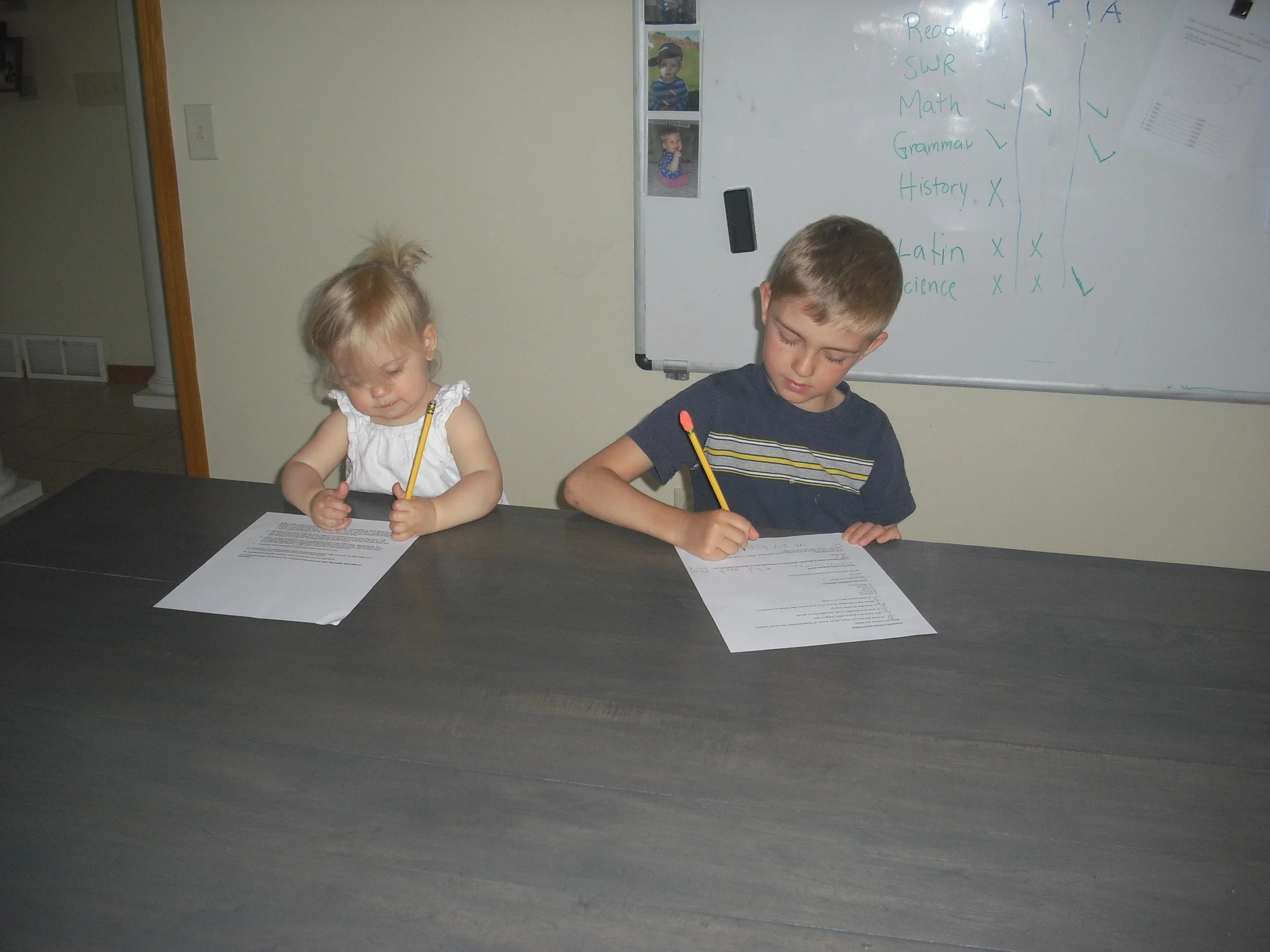
Cottage School
An individualized approach to every student and learning integrated into life.
God created us as beings not only able to learn; He created us to be curious, to want to learn. What is more, our economy requires us to constantly learn and grow. In response to this economic pressure, many schools talk about educating “life-long learners”. At Perpetua Cottage Academy we do this by customizing curriculum to each student and integrating learning into life.
Integrated Learning
Monthly Outings—our students visit different outdoor habitats or places of business, from creameries to the capitol.
Home Economics—our students regularly cook and bake for each other.
Yearly Trips—each autumn older students travel outside of the state to visit museums and/or places of historical importance.
Active and Outside Time—our students have coordinated times of physical exercise each day as well as time for free play outside.
Multi-Age Interaction—using the one-room schoolhouse as a model, students work alongside students of other ages. This allows older students to help younger students, which in turn furthers their learning—the best way to learn is to teach. What is more, small classes in which teachers invest in the same students for multiple years allows teachers to have a significant impact on their character formation.
Learning in other Environments—high school students are required to work, intern, or volunteer for a combined total of 400 hours.
Flexible Weekly Schedule—our students receive the majority of their instruction Monday - Thursday mornings and then have most of the afternoon to work under the supervision of teachers and with the assistance of other students and teachers. Fridays are self-directed, parent-supervised days in which students complete work, make corrections on their work, and review. This allows students the flexibility to shift their weekly work around to avoid the necessity of nightly homework.
Citizenship—responsible adulthood requires individuals not only to obey those in authority, but to independently govern their own conduct. To prepare them for independence and virtuous self-government students at Perpetua have real responsibilities at school and ownership over some of the decisions made. For example, older students have a say over outside learning outings and some responsibility in helping to plan them. They also cooperate with teachers in creating and maintaining the student code of conduct.
Parent Involvement—students do best when their parents are involved. This fact is true regardless of the school model. We build parental involvement into our model by having Friday as a parent-supervised day. Because all new instruction is done at school in-person, this allows parents to be involved in their children’s education without the pressure of having to be masters of any subject. That being said, parents are highly encouraged to read and discuss books alongside their children. If we want our children to be life-long learners, the best thing we can do is to set an example by learning alongside of them.
Different Paces—students have the option to accelerate or slow down. This is not true of every lesson (e.g. book discussions require students to read books at approximately the same pace), but we allow students to retake courses for mastery, to move on to something new after mastering earlier material (e.g. if a student finishes a math book in February, they can move on to the next book and then finish it halfway that current school year and pick back up where they left off in August of the next year), or independently complete course work over the summer.
Individualized Curriculum
Instead of conforming the student to the curriculum, we customize the curriculum to each student. We start from the conviction that each student is a unique individual. We work to figure out where each student is at and then work with their family to create a curriculum that serves them.
This allows students to slow or accelerate their pace of study and to have the freedom to explore areas of interest in greater depth. In areas where our teachers do not have expertise and cannot provide direct instruction, e.g. Mandarin or advanced sciences, students are able to study independently with the support and encouragement of teachers.
A lot of families looking for an individualized approach to education are turning to virtual education. While virtual classes are convenient, they reduce education to an “information dump” and they contribute to our society’s alienation. God made us to be around people—we learn better and grow in our humanity in community. Virtual education reduces education to one in which information is given and consumed. This is a part of education, but people are more than information receptors and an education that only recognizes a part of their humanity, will be an incomplete education.


